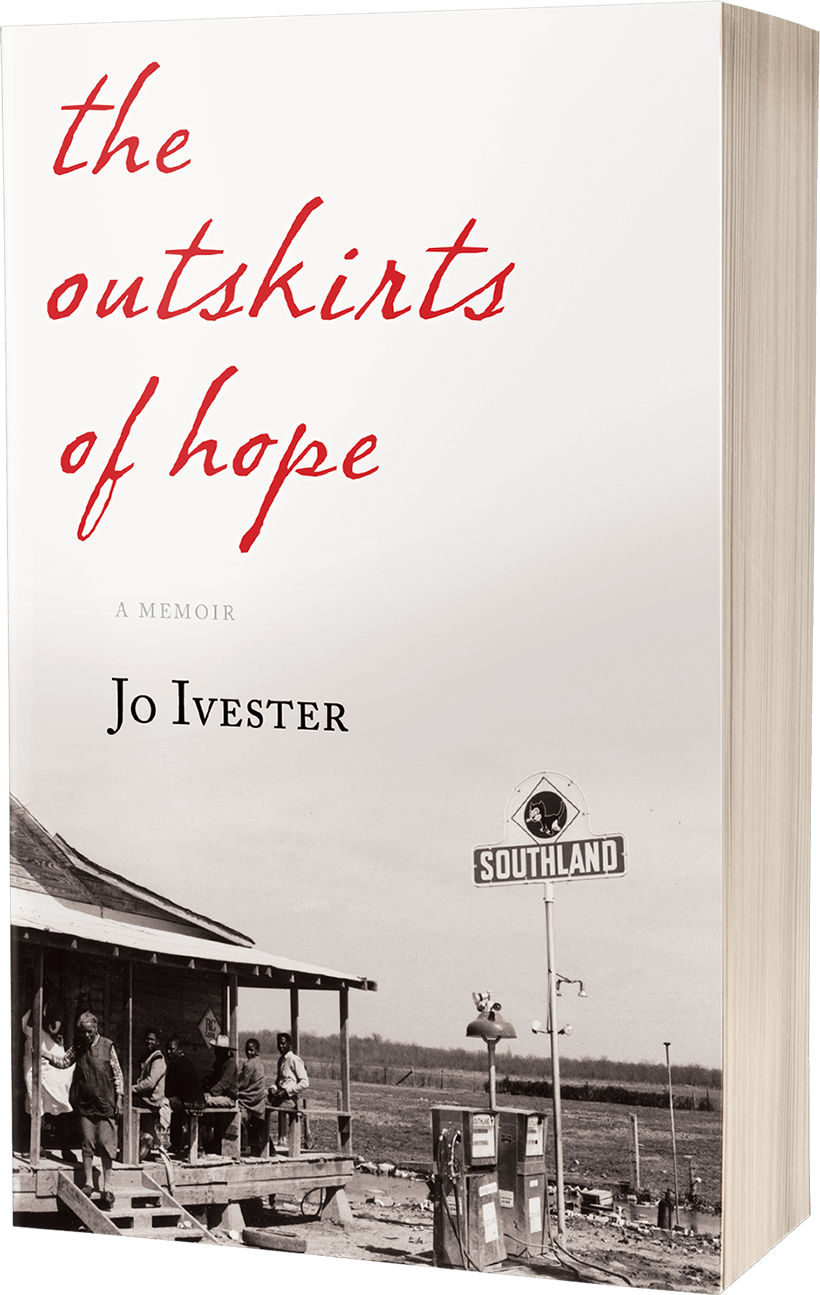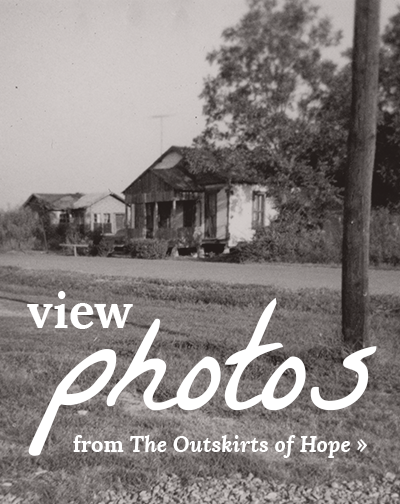A moving, inspirational memoir about how living and working in an all-black town during the height of the civil rights movement profoundly affected the author’s entire family—and how they in turn impacted the community.
Purchase Now:
In 1967, when Jo Ivester was ten years old, her father transplanted his young family from a suburb of Boston to a small town in the heart of the Mississippi cotton fields, where he became the medical director of a clinic that served the poor population for miles around. But ultimately it was not Ivester’s father but her mother—a stay-at-home mother of three who became a high school English teacher when the family moved to the South—who made the most enduring mark on the town.
In The Outskirts of Hope, Ivester uses journals left by her mother, as well as writings of her own, to paint a vivid, moving, and inspiring portrait of her family’s experiences living and working in an all-black town during the heights of the civil rights movement.

Critical Recognition
- Wall Street Journal Best-Seller List; non-fiction e-books
- NPR Selection for it’s National Weekly Feature, Author’s Corner
- Writers’ League of Texas Best Non-fiction for 2015
- 2015 National Indie Excellence Award for Autobiography
- Jewish Book Council Non-fiction Book of the Week in December, 2016
- Kirkus, Booklist, and Story Circle Reviews
- 2015-2016 Sarton Women’s Book Award; silver medal for memoirs
Reviews of The Outskirts of Hope
What makes this book particularly valuable is its vivid depiction of the abhorrent consequences of legalized segregation. What gives it heart is the window it opens to the personal journeys of mother and daughter. An important, riveting history lesson that, unfortunately, is still relevant today. Read More
Ivester’s memoir is a powerful story of the effect one family has on a community and fills in another piece of the history of the civil rights movement. I was captivated by her account of the triumphs as well as the personal costs of confronting racism. Once I began reading, I couldn’t put the book down until I turned the last page. She reminds me that the courage of just a few can make a difference even in situations that seem overwhelming and challenges me to take what may seem to be just one small step. I highly recommend this book. Read More
Ivester also has an important story to tell: She used her journals as well to document her thoughts and feelings as a 10-year-old girl undergoing the major transition from life in a comfortable suburb to living in a trailer surrounded by mud in one of the poorest regions of the country. And tragedy strikes Ivester during her stay in Mound Bayou when some local boys physically hurt her, forcing the family to leave town to prevent the Klan from burning it to the ground. Read More
Ivester builds on journals left by her mother to paint an inspiring portrait of her family’s experiences and a town dealing in a unique way with the racism that still grips our nation today. She describes how her mother helped her students to understand that the anti-Semitism that flourished throughout much of the Deep South was similar to the hatred that they faced as black Americans. Read More
Praise for The Outskirts of Hope
A powerful personal perspective of a tumultuous time in America, seen through the eyes of a mother and her daughter navigating family and societal currents in the midst of the civil rights movement. White and Jewish from Boston, the family is transplanted into the segregated Deep South of the 1960’s, trying to make a difference in people’s lives. Although their new world is fraught with fear and anxiety, their strength of character and dedication to being allies rather than bystanders results in their participation in history.
This is a fascinating tale of a family who talked the talk and walked the walk during the height of the civil rights movement of the 1960s.
An unflinching memoir of the hopes, triumphs, and disappointments of a white family that moves to a black community in one of the most segregated areas of the American South in the late 1960s. This engaging book offers a rare and moving narrative of the power of seemingly modest personal activities in delivering the durable social changes promised by laws and policy.
In the sixties, a lot of people talked the talk about civil rights. The Kruger family lived the life. This sensitive but no-holds-barred account of their life in Mound Bayou, Mississippi is one of the most gripping real-life stories of confronting and dealing with racism ever written. Warning – once you start reading The Outskirts of Hope, you won’t be able to stop.

